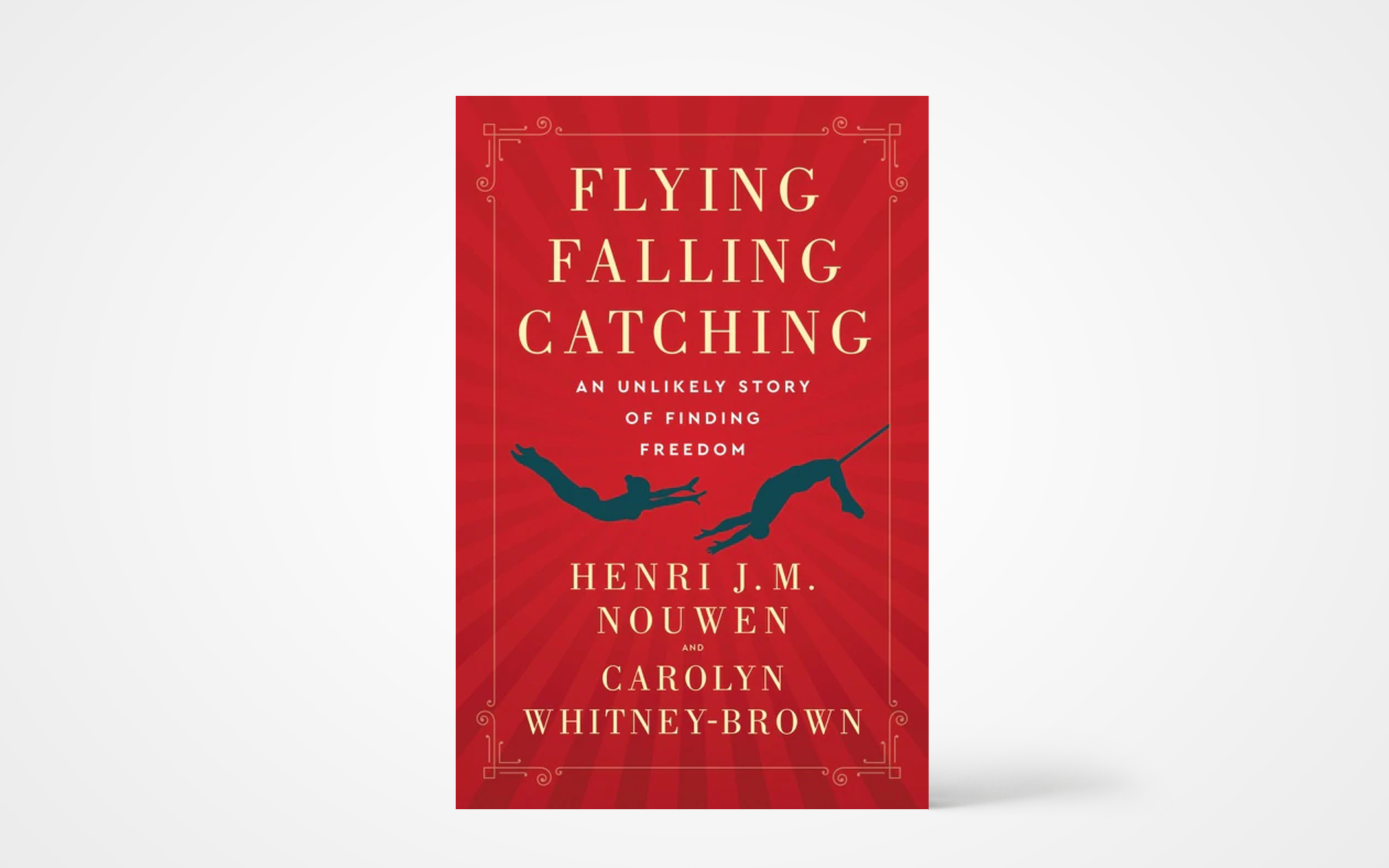I just finished reading Can You Drink This Cup? by Henri Nouwen. Since receiving this book when it was first published, it has become one of my Lenten rituals. And in the reading of it I’ve received many glimpses into Nouwen’s life. You might have one or two of his books on your own shelf. And now there is another: Flying, Falling, Catching An Unlikely Story of Finding Freedom by Henri Nouwen and Carolyn Whitney-Brown.
A few years before his untimely death, Nouwen developed a deep and formative friendship with a South African trapeze troupe, The Flying Rodleighs. Twenty-five years later, Whitney-Brown, a Canadian writer, gathers the pieces of Nouwen’s journals and raw manuscripts and weaves them together into this “unlikely story of finding freedom” of what it is to fly, fall, and then be caught in flight.
Like many of his readers, I knew about Nouwen’s intrigue with the circus. On a visit home to the Netherlands in 1991 to see his elderly father, the two go on an afternoon outing to a traveling circus. The final act is a trapeze performance that takes Nouwen’s breath away. And it opens up a longing in his soul. In his awkward way, Nouwen introduces himself to the artists, and in response to his insistent spirit, the Rodleighs befriend him. Over the next five years until his death at age 64 in 1996, the troupe makes space for him in its community.
Whitney-Brown pulls together the significant details for readers who are unfamiliar with Nouwen’s life. As a well-educated ordained priest, Nouwen became a professor at prestigious American universities. When he was introduced to L’Arche and subsequently offered a chaplaincy at the Daybreak community in Toronto, Canada, he left academia behind to live among the most vulnerable. Nouwen often spoke and wrote about the impact living in this community had on his life. Whitney-Brown and her family lived in Nouwen’s company at Daybreak for seven years.
In the Rodleighs, Nouwen recognized another community. But in this community, it was the beauty and strength of the human body rather than its seeming weaknesses that were its bedrock. For Nouwen there were many parallels and similarities between these two communities, not the least of which was the trust and interdependence that he experienced with Rodleighs and with his Daybreak family.
Whitney-Brown gives gentle voice to Nouwen’s lifelong struggle with his sexual orientation and his aloneness, an acceptance of his own physical body and his social awkwardness. As Nouwen observes his trapezing friends he receives another picture of the grace, poise, and forgiveness that he so desires. To fly, to fall, and be caught again. It is everything a beloved community hopes to be.
Twenty-five years after his death, this book feels like one of the missing chapters in understanding the life of this dearly beloved writer. (Harper One)
About the Author
Jenny deGroot is a freelance media review and news writer for The Banner. She lives on Swallowfield Farm near Fort Langley B.C. with her husband, Dennis. Before retirement she worked as a teacher librarian and assistant principal.

